
Everyone Knows Narnia
Ella Risbridger
Everyone knows Narnia, or some version of it.
Even if you’ve never read CS Lewis (maybe you saw the 1980s BBC adaptation of The Lion, The Witch & The Wardrobe, or the big-budget blockbuster) you probably know Narnia: the land where it’s “always winter but never Christmas”, where the White Witch reigns supreme, where animals speak and ordinary children are the heroes long-promised in song to come and save the universe.
I don’t remember a time before I knew Narnia; I don’t remember reading The Lion, The Witch & The Wardrobe for the first time. I don’t really remember reading it at all: I just remember living in it, believing in it, waiting for it. I just remember being very sure that one day I would open an ordinary door and find a whole new world behind it.
It seems to me now that I have always known it: that some things for me simply are, and always will be, Narnia. Snow under a lamppost; pine forests; marmalade roll. Turkish Delight, which will never not be (first and foremost) the taste of betrayal. I still can never see a box of Turkish Delight without wondering what kind of person would betray their brother and sisters for something that tasted like soap. (I could have seen it for a box of Quality Street toffee pennies, maybe. But never for Turkish Delight.) These things that live in the ordinary world, as the Pevensies are fairly ordinary children: they bicker and they disagree and they love each other; they miss their parents and are annoyed by having to be polite to strangers and stay away from home. And yet the Pevensies are transformed into kings and queens, as we are transformed as readers, as the world is transformed around us.
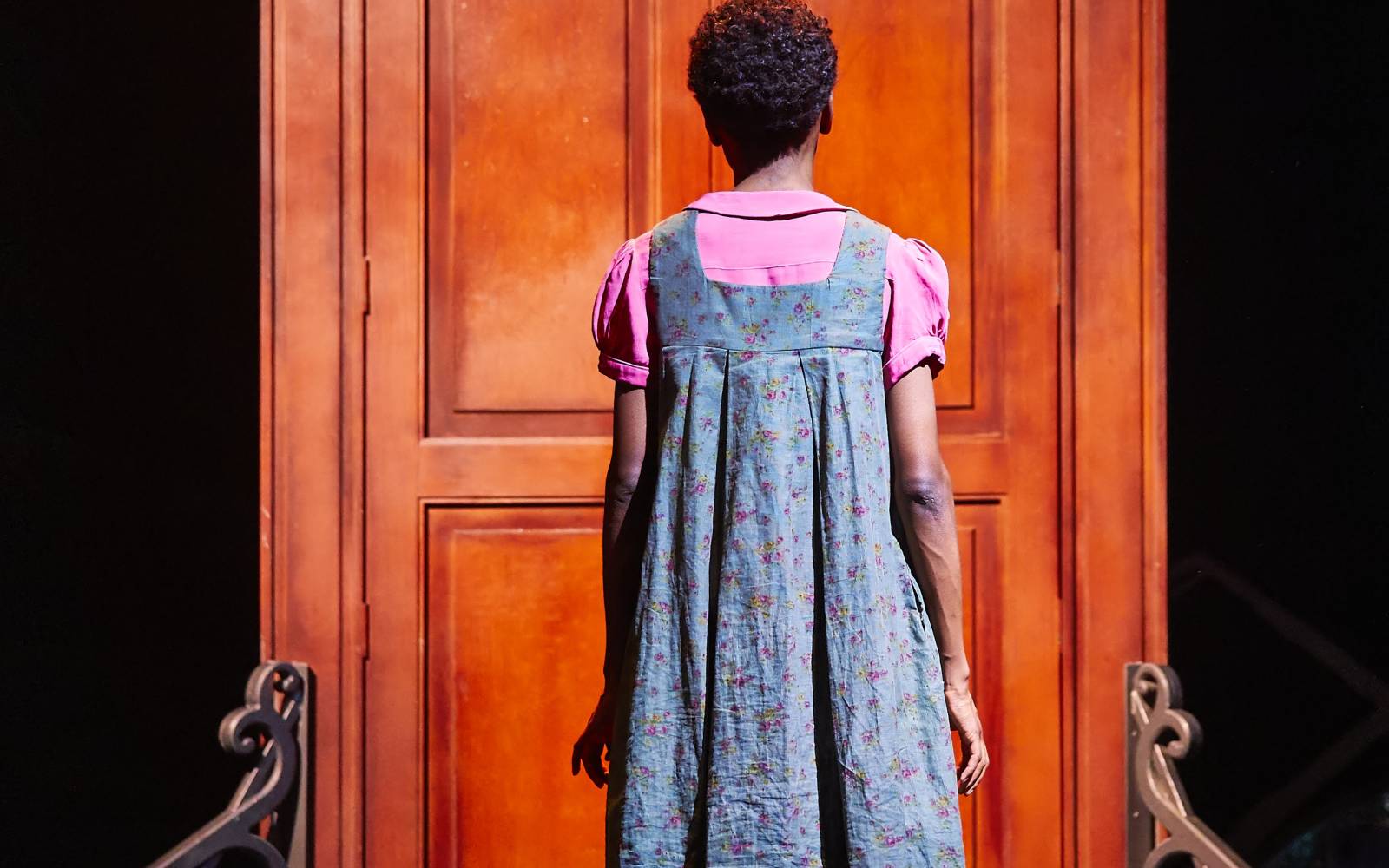
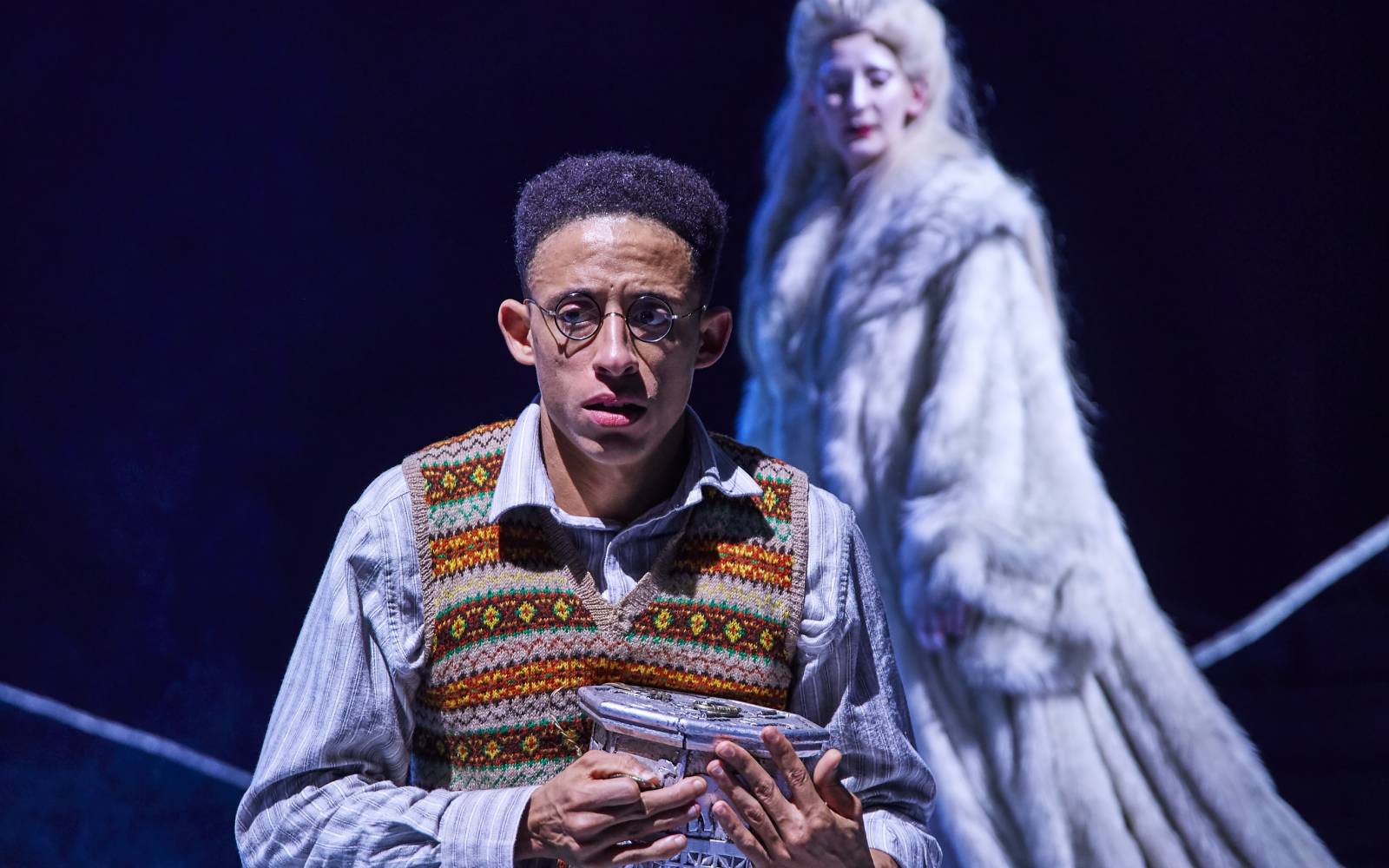
This is part of what makes CS Lewis so great: this juxtaposition of the mundane and the magical; the transformation of the ordinary into something rich and strange. The lamppost would be ordinary in London; but shining in the depths of a dark forest it becomes the unforgettable symbol of a whole new world. The first winter I moved to London, it snowed properly; and as I ran down the Embankment on my way home all the great old-fashioned lampposts came on at once with their lovely orange light shining on the proper fat snowflakes falling all around, and I thought, idiotically: it’s Narnia!
And for a moment I half-believed it. For this is the kind of hold CS Lewis’s world has over so many of us: a sense that we could go back to Narnia at any time, a sense that one day we we might be kings again in a world where magic is real and animals speak and a great gold lion watches over us. The way through the wardrobe might be closed, true – but you never know where we might find another way back. You never know how we might find magic again. You never know what doors we might open when we least expect it, or when the ordinary stuff of life might become, somehow, transformed.
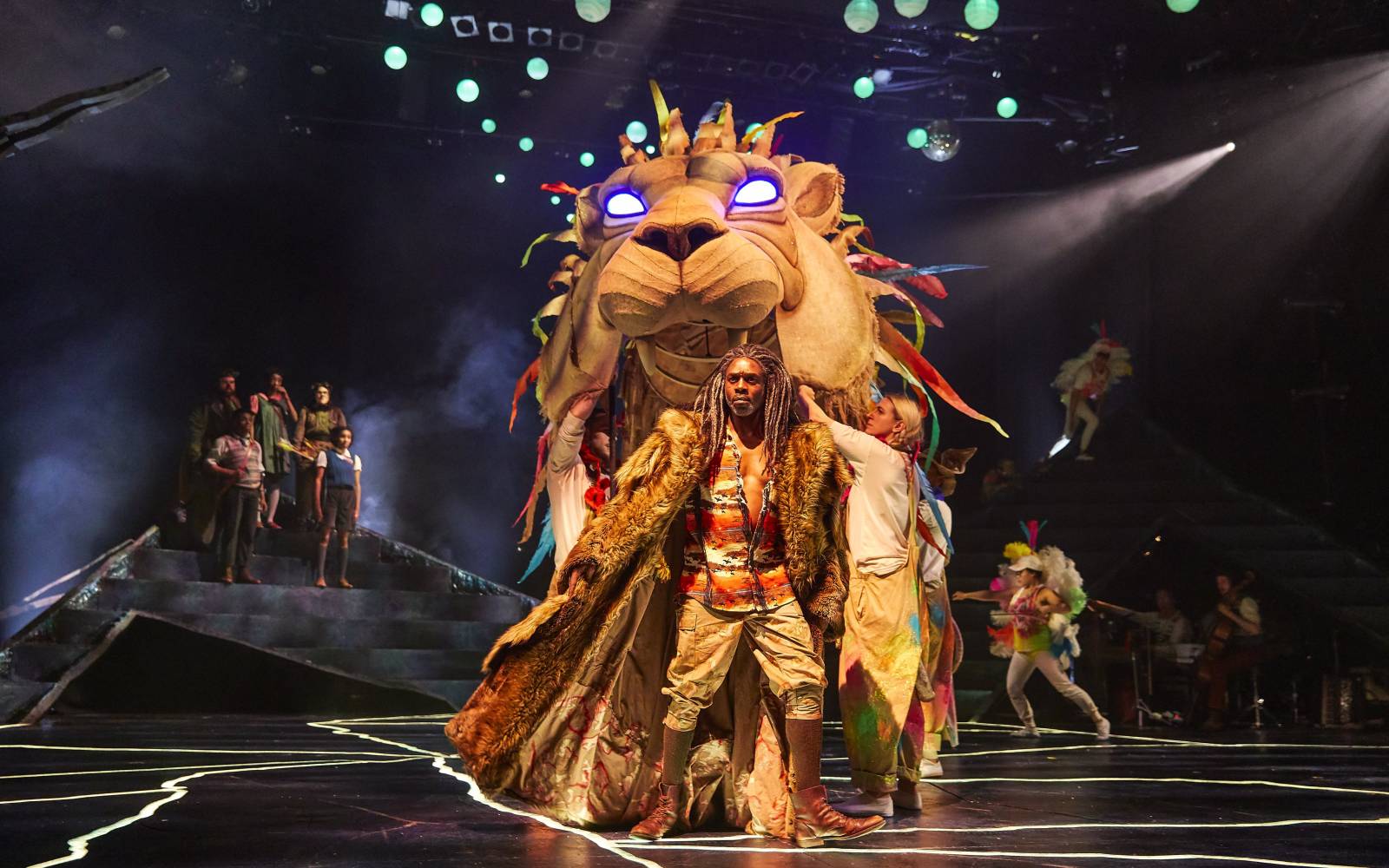
And that, of course, is theatre. That’s the whole point of theatre: that the ordinary fabric of life – wires and hard work and endless organisation – should become, under the light, something else.
It’s not a wardrobe, but the way to the theatre is as ordinary as a wardrobe: a train, a bus, getting everyone into the car with their coats on and their shoes on and the right number of children and the right number of tickets. Even the theatre foyer, with the merchandise and the balloons and programmes, is sort-of ordinary; and the door to the theatre itself quite ordinary with a green Emergency Exit sign glowing ordinarily over the top of it. Even once you’re in, and sitting down, it’s still sort-of the same world that you know every day. And yet, once the house lights go down and the stage lights come up, it becomes something entirely different. We all agree to believe that it’s something different, and done right it’s impossible not to believe.
It is an impossible magic trick: how can this man in the programme – this grown-up man, with degrees and TV credits – be a faun? How can this quite ordinary girl – who is about your age, and probably has to go to school and things – be allowed to have a bow and arrow? How can it possibly be that out of some puppets and some lights and some fabric and some paint, a real live lion will stand before you and speak? For someone made all of it: this world that’s about to open up for you. A team of people painted the backdrops, and sewed the costumes, and practised for hours; and tried to get it right; and cast and re-cast and sketched and built and danced and tried again; and were late home; and stuck in traffic on the way back from the theatre; and tired and cross and stressed in an ordinary grown-up sort of way. You know all this, when you go to the theatre. You know it’s impossible that what you’re seeing is real, in the same way I must have known when I read The Lion, The Witch & The Wardrobe for the first time that it was “just a story”.
And yet – and yet it was real to me, as this is real to you, and that’s the purest magic there is: the transfiguration of words into a living, breathing world.
Ella Risbridger, October 2019
Ella Risbridger’s first cookbook, Midnight Chicken (& Other Recipes Worth Living For), is out now. She is also the editor of Set Me On Fire: A Poem For Every Feeling, an anthology of poems that are actually good. You can buy both her books in all good bookshops; and you can find her in all the usual places on the internet.
This article was originally published in the production‘s programme.
Photos by Brinkhoff/Mögenburg.
Further reading
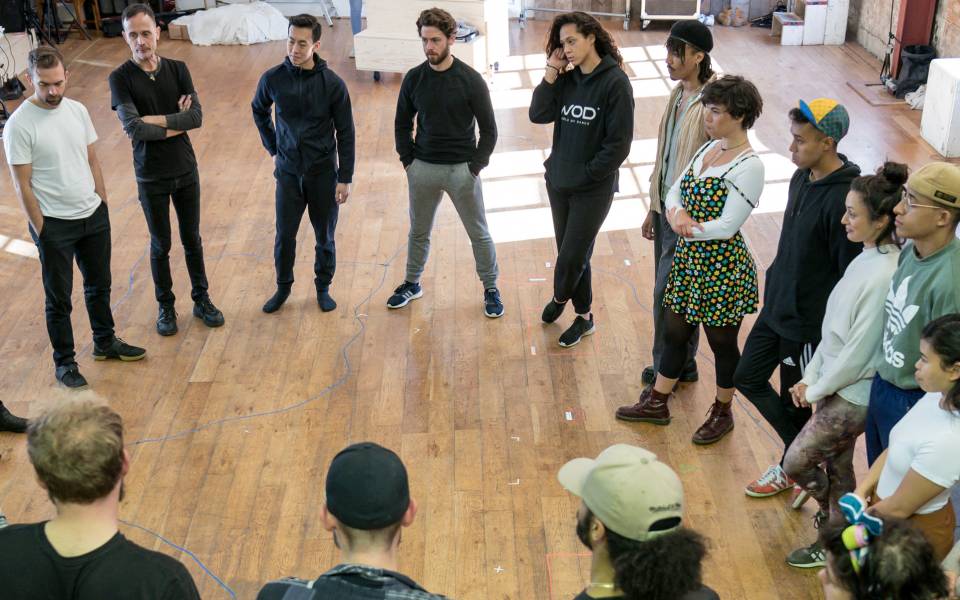
The First Morning
Robert Butler
It was the first morning of rehearsals for The Lion, The Witch and The Wardrobe and 40 actors, stage managers and musicians were sitting in a circle in the foyer of the Bridge Theatre. Everyone introduced themselves – ‘puppeteer’, ‘ensemble’…
More →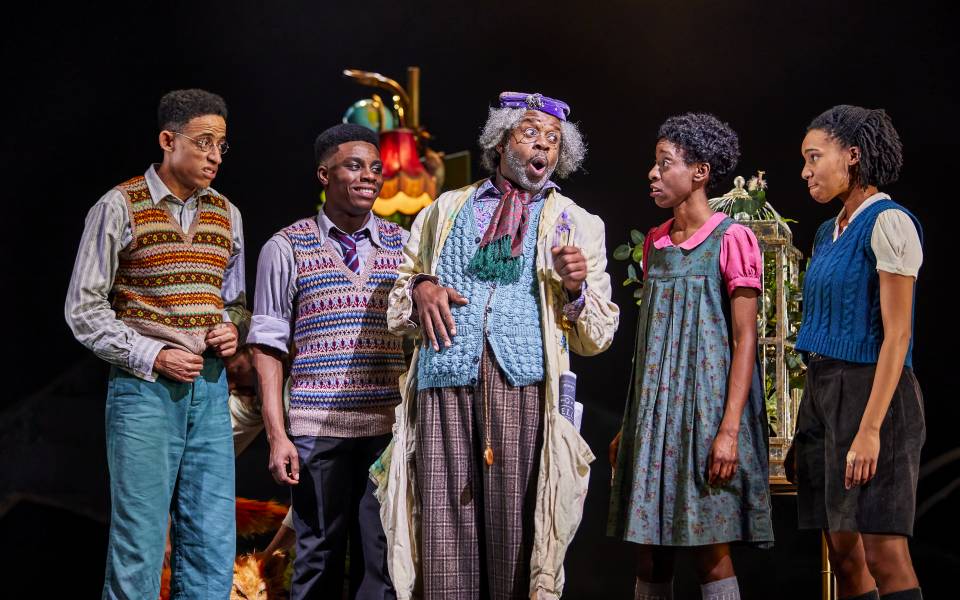
'Evacuate Forthwith'
Julie Summers
From today’s perspective, a situation where upwards of a million families would agree to send their children away from home, to strangers in the countryside, or even abroad, for an unknown period is almost unimaginable. Yet during the Second…
More →